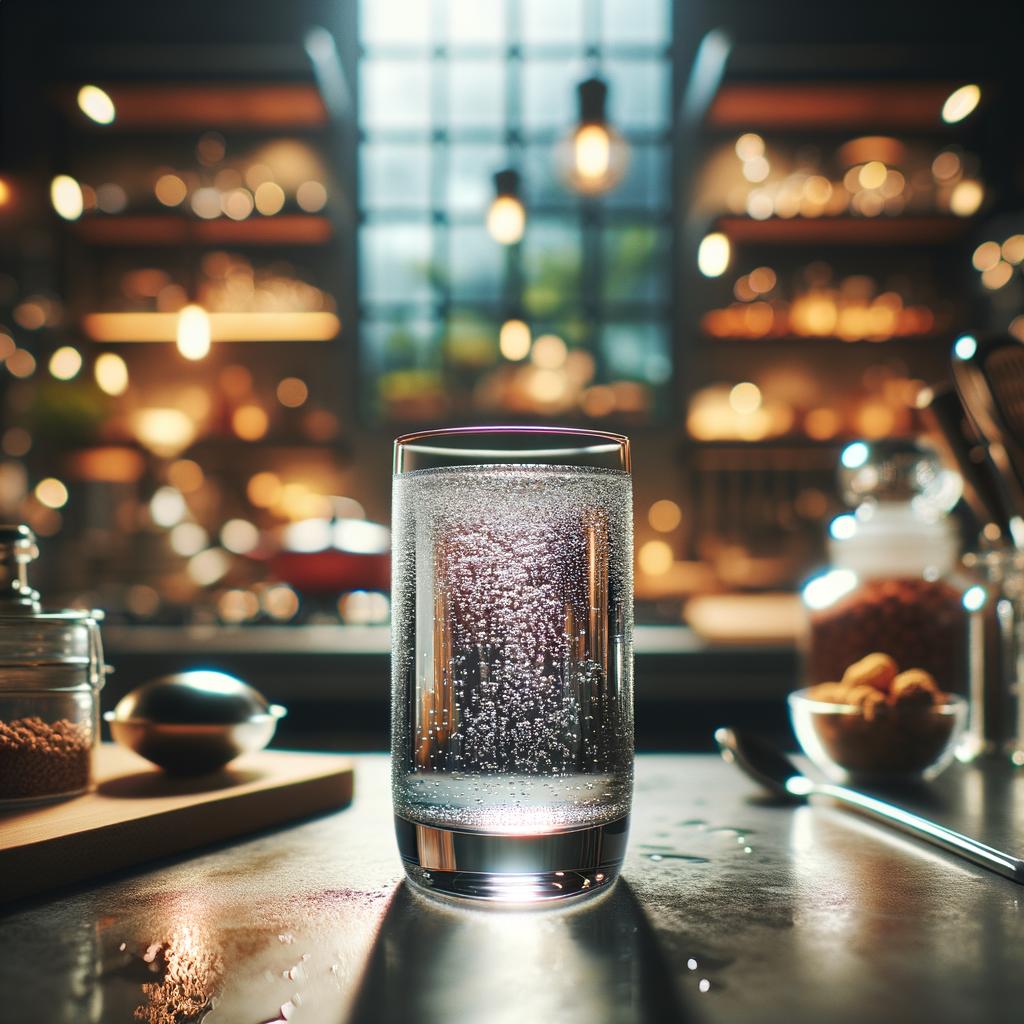Cold Sparkling Water

Description Cold sparkling water, also known as carbonated water or seltzer, is a refreshing and invigorating beverage. It is a clear liquid with a crisp, clean appearance that sparkles when light hits it, much like a precious gem. The tiny bubbles that effervesce from the bottom of the glass to the surface create a distinctive, lively texture. The taste of sparkling water is often described as slightly sharp, with a refreshing tang that dances on the tongue, a stark contrast to its still water counterpart. What sets sparkling water apart from other beverages is its ability to deliver hydration with a unique sensation, making every sip an experience.
Primary Uses Sparkling water serves many purposes in both culinary and non-culinary contexts. In the kitchen, it is often used in recipes for light and airy batter for tempura or pancakes. It's also a key component in making dough for certain types of bread and pastries. In the world of beverages, it is the backbone of many cocktails, mocktails, and is often enjoyed on its own, or with a slice of lemon or lime for a zest of flavor. Beyond its culinary uses, sparkling water is also used in beauty routines, for example, as a base for refreshing face mists.
History Sparkling water has a fascinating history. In the past, it was found naturally in mineral springs and was believed to have healing properties. The Romans, known for their baths, often bathed in natural springs and drank the water for its supposed health benefits. The first man-made carbonated water was created in the 18th century by Joseph Priestley, who was trying to replicate those naturally occurring fizzy waters. The advent of home soda makers in the 20th century brought sparkling water into households worldwide, and its popularity has only grown since then. There's even a charming myth that sparkling water was discovered when a bottle of still water was accidentally left in a cold place and became carbonated.
Nutritional Information Nutritionally, sparkling water is as beneficial as regular water, providing hydration without any calories or sugars. It contains minerals like calcium, potassium, and magnesium, depending on its source. While it's a healthier alternative to sugary sodas, it's important to note that flavored or sweetened versions of sparkling water may contain added sugars or artificial sweeteners. Some people find that sparkling water helps with their digestion and provides a satisfying alternative to still water. However, those with sensitive stomachs or acid reflux issues may want to consume it in moderation. Compared to other carbonated beverages like soda, sparkling water is a healthier choice as it doesn't contain the high levels of sugar and artificial ingredients.

